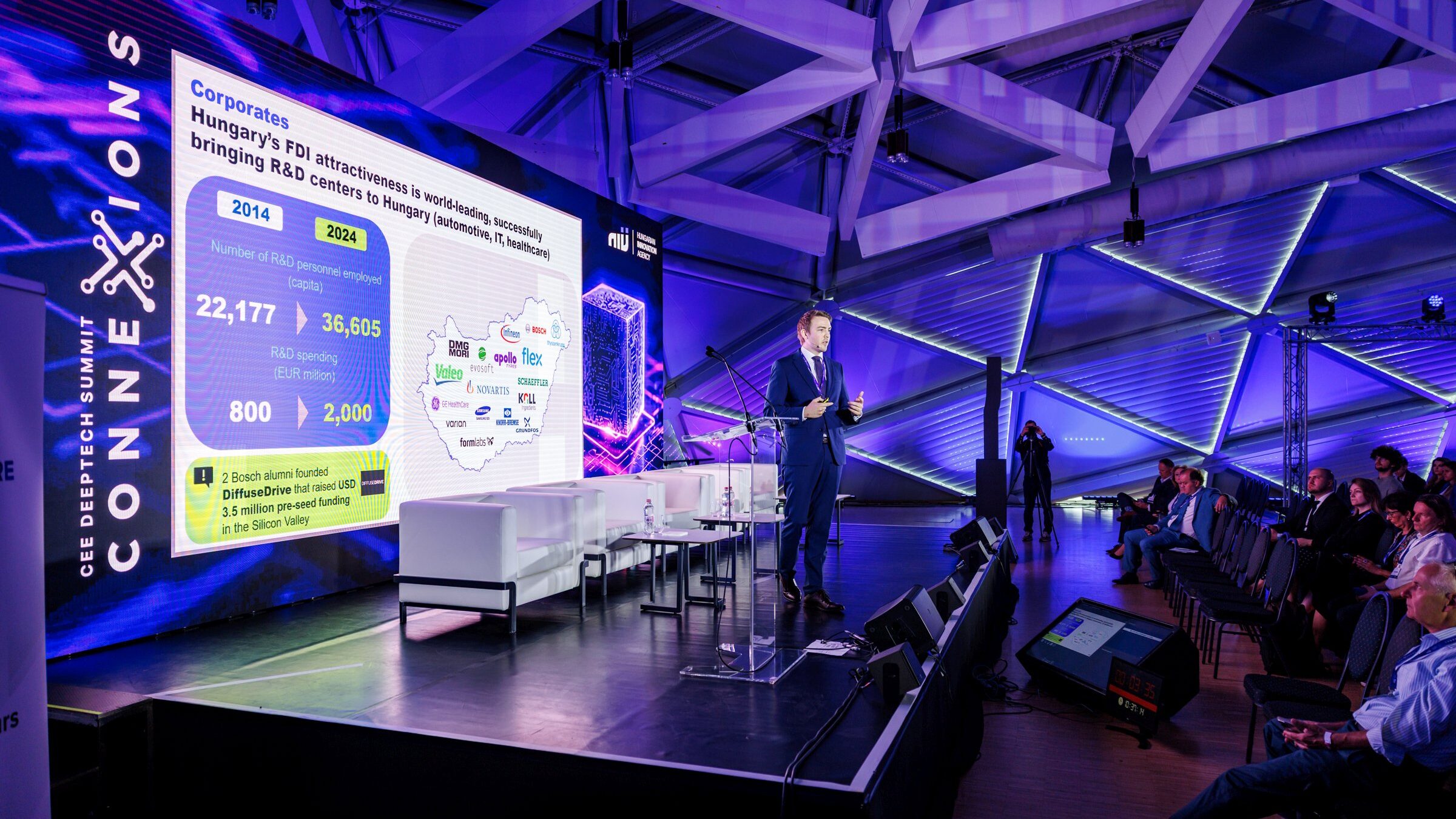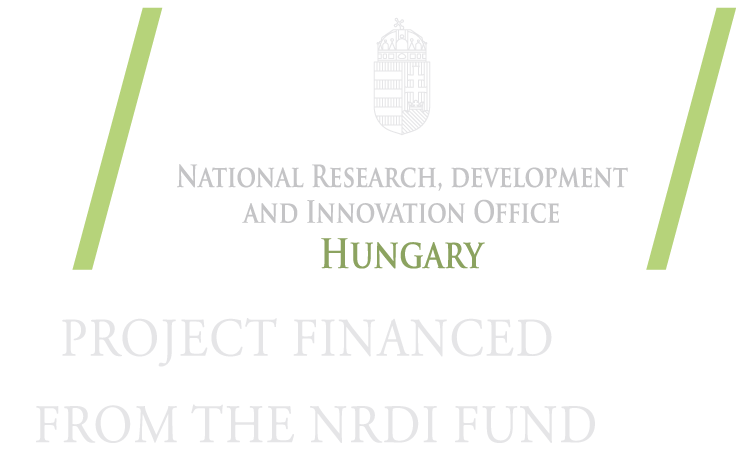
Turning Our Region into Europe’s New Silicon Valley
Central and Eastern Europe could become the driving force behind the European Union’s competitiveness turnaround, enabling the region, through joint efforts, to emerge as Europe’s new Silicon Valley – emphasized Balázs Hankó, Minister for Culture and Innovation, in a video message shown on 11th September 2025 at the “CONNEXIONS – CEE Deep Tech Summit” conference held at the Bálna Defense Center in Budapest.
In his opening address, the minister underlined that research and innovation are key to Europe’s ability to respond to social and economic challenges. However, in this field, the EU has fallen behind the United States and China: while in 1996 more than a quarter of the world’s scientific publications came from Europe, today the figure is only 18 percent. Of the world’s 50 largest technology companies, only four are European, and just 5 percent of global venture capital is located in the EU, compared with 52 percent in the U.S. and 40 percent in China.

According to Hankó, this has contributed to the decline in the EU’s share of the world economy from 28–29 percent twenty years ago to just 17 percent today. At the same time, Central and Eastern European countries have become the Union’s growth engine: over the past 15 years, their economies have grown at twice the pace of the western member states. The region’s economic weight increased from 11 to 18 percent, while R&D expenditure also grew faster than in Western Europe.
The minister stressed that universities, research institutes, and technology companies in Central and Eastern Europe will play a crucial role in making the region the engine of the EU’s competitiveness turnaround. He recalled that through the Neumann János Program, Hungary has set the goal of reaching the top ten of the European innovation ranking by 2030 and, in the longer term, breaking into the global elite.
“Our aim is for the countries of Central and Eastern Europe to jointly bring about this comprehensive economic transformation, thereby turning the region into Europe’s new Silicon Valley. Only together can we succeed,” said Hankó.

László Bódis, Deputy State Secretary at the Ministry of Culture and Innovation and CEO of the National Innovation Agency, outlined the strategic vision for Central European deep tech in his presentation at the conference. He highlighted that the goal of the event is to foster successful Hungarian businesses from scientific results. He added that three main focus areas are healthcare development, artificial intelligence and data analysis, and cybersecurity.
According to the Deputy State Secretary, these businesses can simultaneously address social challenges and create jobs. He emphasized the importance of international cooperation, which helps connect Hungarian companies with investors and partners.
“Our task is to turn the achievements of researchers and educators into successful Hungarian technology businesses,” Bódis said.

At the event, the National Innovation Agency signed a cooperation agreement with Hello Tomorrow, an international organization supporting science and technology projects. The document was signed by László Bódis on behalf of the Hungarian agency and Alexander Cywes representing Hello Tomorrow.
Source: MTI



